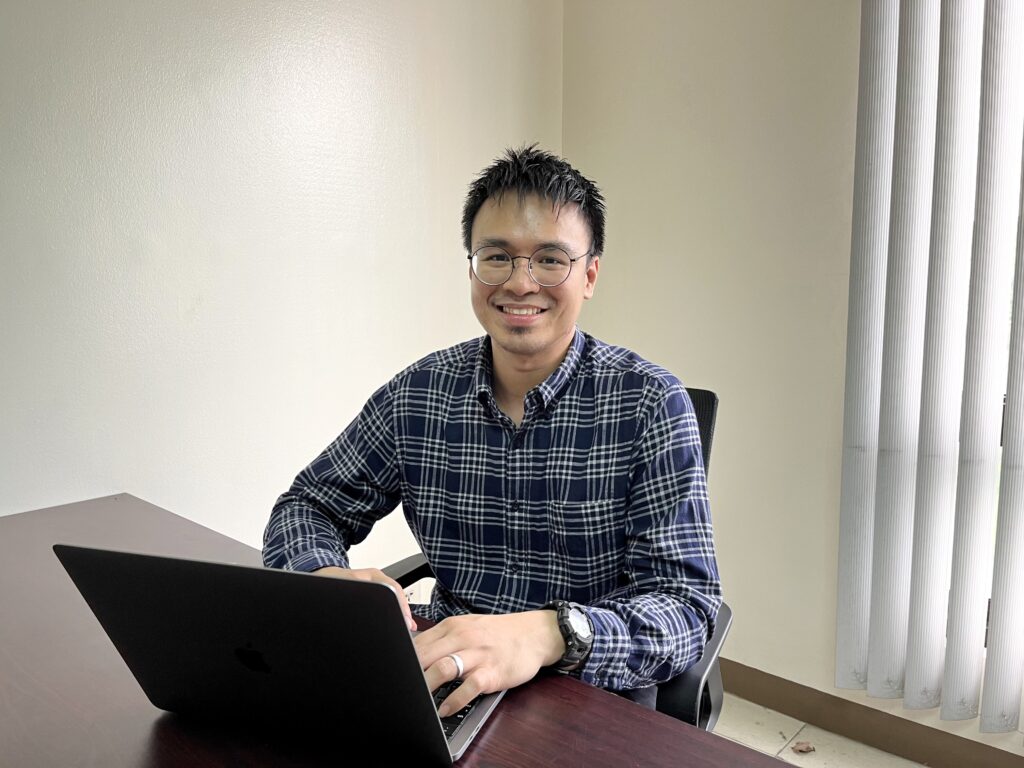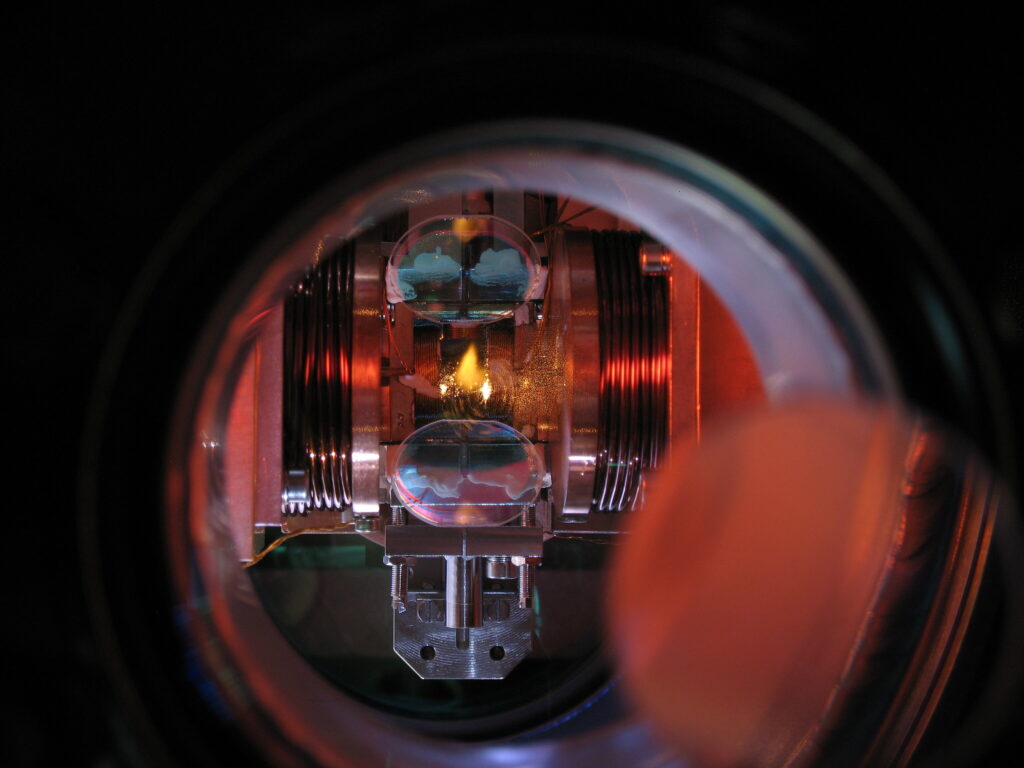Filipino physicist Dr. Jayson Cosme from the University of the Philippines – Diliman College of Science National Institute of Physics (UPD-CS NIP) recently led a team of six German researchers in pioneering a way to make a special kind of “dark” matter that can’t be observed using standard laboratory methods. His team’s findings were published in the prestigious international journal, Physical Review Letters.

UPD-CS NIP physicist Dr. Jayson Cosme led a team of German researchers in the creation of a dark-state Bose-Einstein condensate. Their groundbreaking work was published in Physical Review Letters. (Photo credit: Dr. Jayson Cosme)
BECs can be observed and studied using special cameras. However, Dr. Cosme’s team was able to use lasers to further manipulate them so that they can’t be observed using these standard methods. “By shaking BECs in the right way, we can cause them to become quantum objects that don’t absorb, reflect, nor emit light—hence, ‘dark,’” he explained.

The flame-like glow in this experimental setup is from Rubidium-87 atoms that are about to form a Bose-Einstein condensate. (Photo credit: Dr. Andreas Hemmerich)
Dr. Cosme expressed pride and gratitude at being given the opportunity to helm an international team composed of some of the foremost researchers in his field. “I’m very honored and thankful to have been the last author on this paper, as my colleagues are all from Germany,” he said.
“This has been a very deep cooperation between myself and the group of Prof. Andreas Hemmerich, who studied under Nobel Laureate Theodor W. Haensch; as well as Prof. Ludwig Mathey’s group, which includes my close collaborator, first author Jim Skulte,” he explained.






